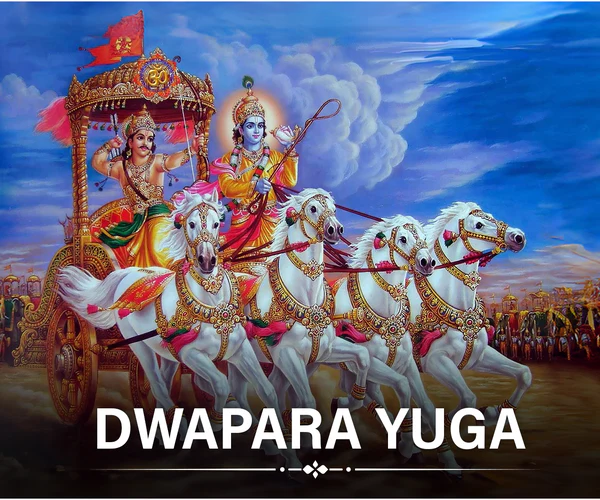A story of Dvapara Yuga in Prose ( part-2)
By Lokanath Mishra
Emperor Jarasandha kept track of Kansa’s conquests. He marched against Mathura. At that time, Kansa was residing in Mathura. Jarasandha camped at the borders of the kingdom, while Kansa set up camp on the other side with a small army to resist him.
On the eve of battle, an enormous elephant in Jarasandha’s army went mad. It killed many of his soldiers, and none could restrain it. The raging beast charged into Kansa’s camp. Kansa, seizing it by its mighty trunk, swung it about and hurled it away. The elephant fell into Jarasandha’s own camp and died. Witnessing this feat, Jarasandha realized Kansa’s immense strength. He understood that wisdom lay not in enmity but in alliance. So, he gave his two daughters, Asti and Prapti, in marriage to Kansa.

Having become Jarasandha’s son-in-law, Kansa considered himself invincible. With the help of demons, he stormed the heavens, defeated Indra and other gods, and as a symbol of victory, carried Indra’s throne back to Mathura.
In the mortal realm, the kingdoms Kansa had subdued lived in constant fear. His demonic armies would raid them without warning, spreading terror and oppression. His closest allies were the mighty warriors Keshi, Chanur, and Mushtik. Along with them, the demons Dhenukasura, Vatsasura, Shakatasura, Pralambasura, Banasura, Narakasura, and above all Jarasandha, spread havoc across the earth. Most of Bharat trembled under the terror of demons.
Even the gods grew anxious as these forces of darkness gained strength in the mortal world. Mother Earth herself, unable to bear the burden of their tyranny, took the form of the cow Surabhi and went to the Creator for relief. Bowing before Brahma, she lamented:
“Kansa’s power has made life unbearable. What shall be done now? Save me!”
Brahma, accompanied by the gods, went to the ocean of milk to pray to Narayana. Lord Vishnu appeared, and Brahma explained the demons’ atrocities.
Vishnu, with lotus-face and emerald garland, granted them assurance with a merciful glance:
“Do not despair. I shall descend in the Yadava clan. I will be born to slay Kansa and restore balance to the world. Go now, and prepare for My play among the cowherds.”

In the Vrishni clan lived a chief named Sura Sena. His son Vasudeva first married Rohini. Devaka, brother of King Ugrasena, had two daughters—Devaki and Daivaki. Daivaki was married to Damaghosha, king of Chedi, while Devaki was wedded to Vasudeva.
The marriage was celebrated with great pomp. Kansa, deeply affectionate toward his cousin Devaki, himself drove the chariot as her escort. But as they traveled, lightning flashed, thunder roared, and a heavenly voice resounded:
“Foolish Kansa! The one you now escort will bear the cause of your death. Her eighth child shall slay you.”
The prophecy shattered Kansa’s affection. Enraged, he seized Devaki by the hair and drew his sword to kill her. Vasudeva intervened, pleading earnestly:
“Brother-in-law! You are strong, the crown prince of Mathura. Killing a helpless woman will bring only infamy and turn the Yadavas against you. You need not fear—Devaki herself will not kill you. I swear, every child born of her I shall hand over to you. Trust my word, for I have never spoken falsehood.”
Knowing Vasudeva’s truthfulness, Kansa relented. He released Devaki but returned to Mathura, disturbed. On the way, Narada appeared. Pretending sympathy, he inflamed Kansa’s fears further:
“Indeed, the prophecy is true. Vishnu Himself will be born to slay you. Beware!”

Thus poisoned by Narada’s words, Kansa grew restless. That very night, he sent demon guards to Vasudeva’s house. The joy of marriage turned to terror. Many Yadavas were slain trying to resist. Vasudeva and Devaki were chained and thrown into prison.
When King Ugrasena scolded his son for such cruelty, Kansa and his demon allies—Keshi, Chanur, and Mushtik—seized power. Ugrasena was dethroned and forced to serve as a mere city watchman, reporting on Yadava activities. The next day, Kansa ascended Mathura’s throne. The royal priest, Sage Gargacharya, performed his coronation. Though unwilling, the Yadavas were forced to acknowledge him as king.
Meanwhile, Yadava heroes like Satyaki, Akrura, and Kritavarma secretly plotted against him. Fearing for Rohini’s safety, they sent her away to Nanda, chief of the cowherds, under cover of night.
Narada, after sowing seeds of fear in Kansa, went to Vishnu in the ocean of milk. With gentle laughter, Vishnu spoke:
“Ah, Devarshi, you seem fresh from the mortal world. Did you witness Kansa’s coronation? You know well—before I descend, you prepare the ground. The time for My birth is near. Dharma has weakened. In Satya Yuga, it stood on four pillars—penance, purity, compassion, and truth. By Treta, penance fell; by Dwapara, purity. Now compassion too has vanished. Only truth lingers. See how Kansa has treated his father and sister’s husband? The world groans under tyranny once again. Therefore, I must descend swiftly to protect the righteous, destroy the wicked, and guide the age to come. Shesha will descend with Me, not as My younger, but as elder, as he desires.”
Thus, the stage was set for the divine play of Krishna’s birth.
⸻
( to be continued)
A Story of Dvapara Yuga in Prose:( part-1)


Pingback: UniverseHeaven